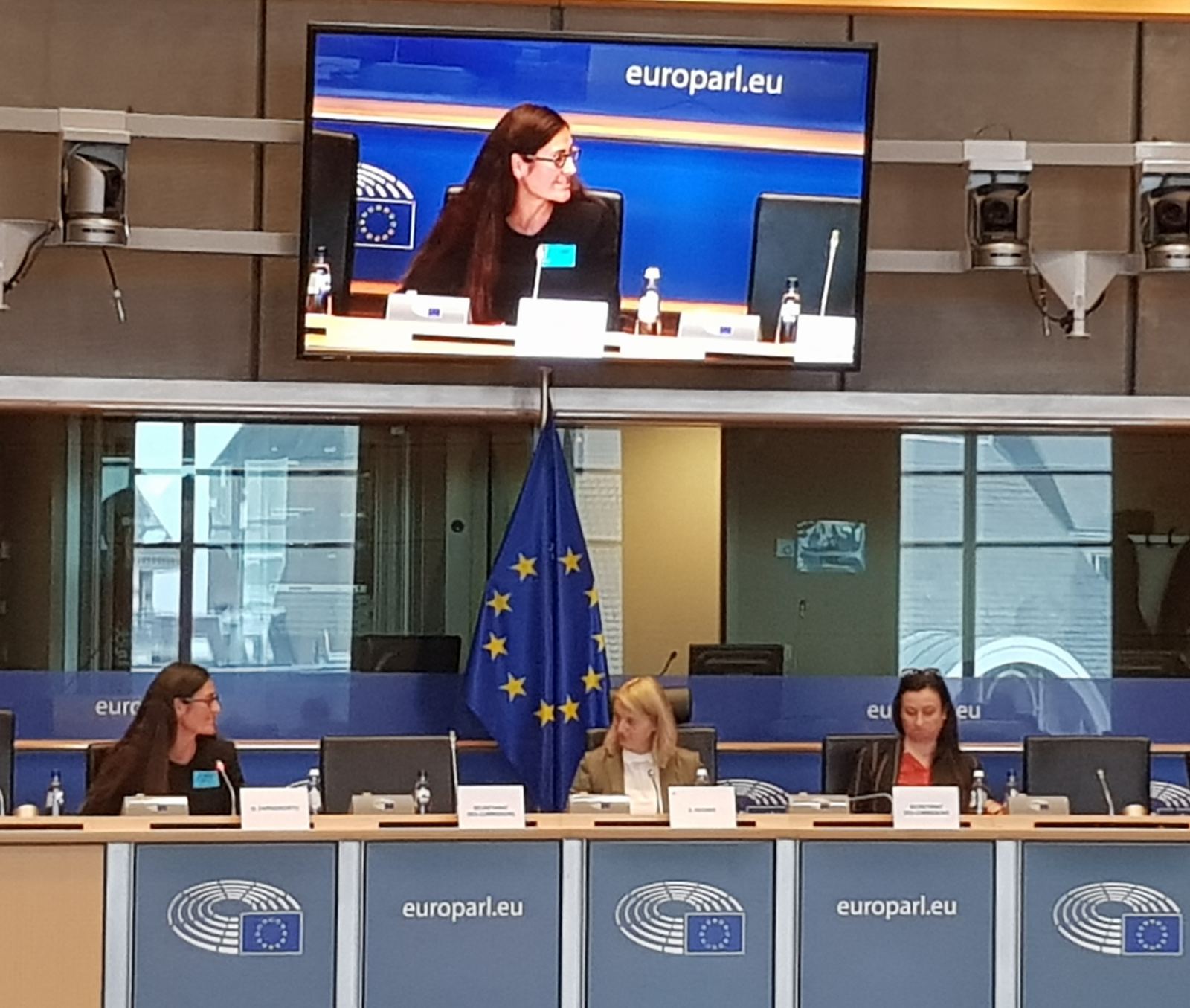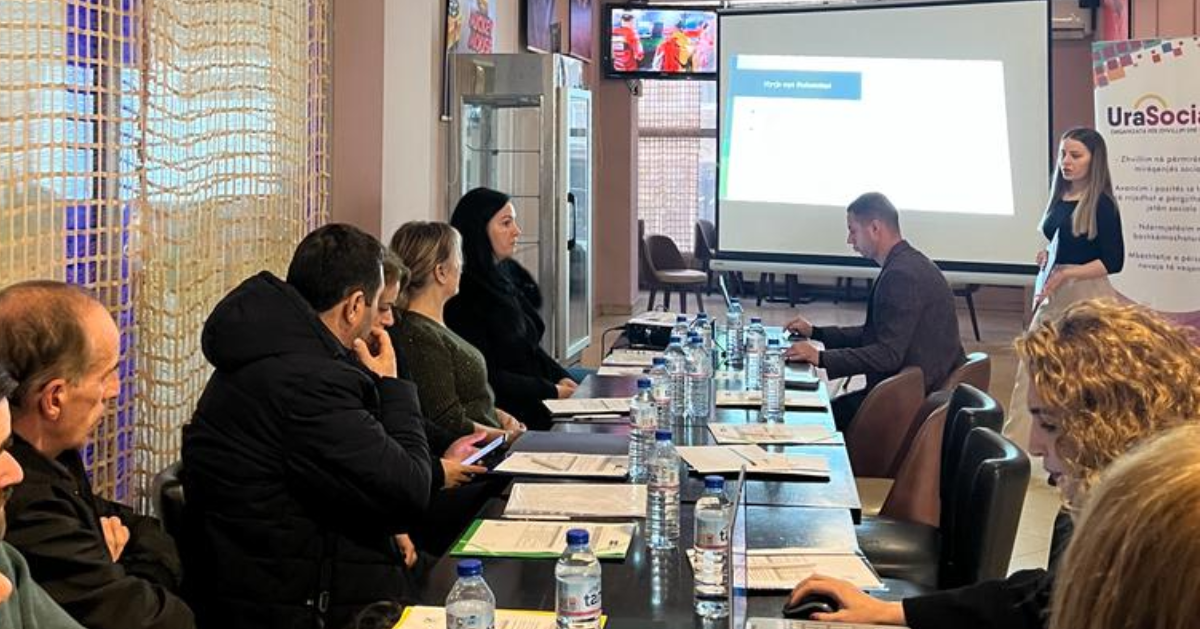A Kosovo Women’s Network (KWN) representative, Nicole Farnsworth, presented KWN and its regional partners new report on Gender-based Discrimination and Labour in the Western Balkans at the European Union (EU) Parliamentary Committee on Women’s Rights and Gender Equality (FEMM) on 5 December 2019 in Brussels.
The report contains several recommendations for Western Balkans (WB) institutions as well as the EU, including the adoption and implementation of legal reforms related to addressing gender-based discrimination, improved monitoring, awareness-raising of people regarding their rights and continued support to women right’s organisations working to address such discrimination.
“We will take concrete action regarding income equality, work-life balance and the fight against violence against women,” said Ms. Evelyn Regner, Chair of the FEMM Committee.
The new research provides information about shortcomings in the relevant legal framework; the prevalence and nature of gender-based discrimination related to labour; the extent to which people have filed claims; and how institutions have treated such cases.
“Although several survey respondents have faced discrimination, very few have reported it. More than 76% did not report it to any institution”, Farnsworth said. She added: “This research draws from primarily well–educated women, employed women, from urban area with access to internet, yet one in three have suffered sexual harassment and many have suffered gender-based discrimination in hiring. Can we even imagine what is the situation for women who are not in the same position, who are in a more precarious position?”
The recommendations presented to the European Union were to:
- Prioritise and require implementation of institutional reforms to better address gender-based discrimination related to labour as a conditionality of the EU accession process.
- Encourage all WB governments to amend their legal frameworks in line with EU directives, including the EU Work-Life Balance Directive.
- Continuously monitor gender-based discrimination in labour via Country Reports, using a consistent regional approach.
- Via political and policy dialogues with government counterparts, apply political pressure for governments to implement research recommendations.
- Continue meeting women’s rights organisations to monitor reforms.
- Continue supporting women’s rights organisations to raise awareness, advise women, provide legal aid and monitor/hold accountable institutions.
In addition, towards furthering gender equality through EU external financing, following the adoption of the new 7-year Multiannual Financial Framework (MFF), Farnsworth recommended that the FEMM Committee consider gender mainstreaming the new Common Implementing Regulation, which at present is fairly gender blind. She also suggested earmarking finances under the Instrument for Pre-accession (IPA) portfolio that would focus specifically on gender equality as a sub budget line. “Putting a budget line in the MFF under IPA would earmark these funds for women rights groups who are qualified to provide these services in the future and ensure that these services are provided in accordance with the Istanbul Convention,” she said.
“You already gave us some food for the upcoming work and I think it is a great moment to do this,” Regner said. “This Committee is open minded to your contribution in this regard.”
Supported by the EU and co-funded by the Swedish International Development Agency, the research on gender-based discrimination was part of a broader regional initiative aimed at addressing gender-based discrimination and improving women’s labour rights. The report was researched and written by a coalition of women’s rights organisations from the WB, including the Kosovo Women’s Network , Reactor – Research in Action from North Macedonia, Gender Alliance for Development Centre from Albania, Helsinki Citizens’ Assembly Banja Luka from Bosnia and Herzegovina, Women’s Rights Centre from Montenegro, and the Kvinna till Kvinna Foundation from Sweden through its office in Serbia.
For more information, see the fact-sheet of the report HERE
The presentation can be viewed HERE.








